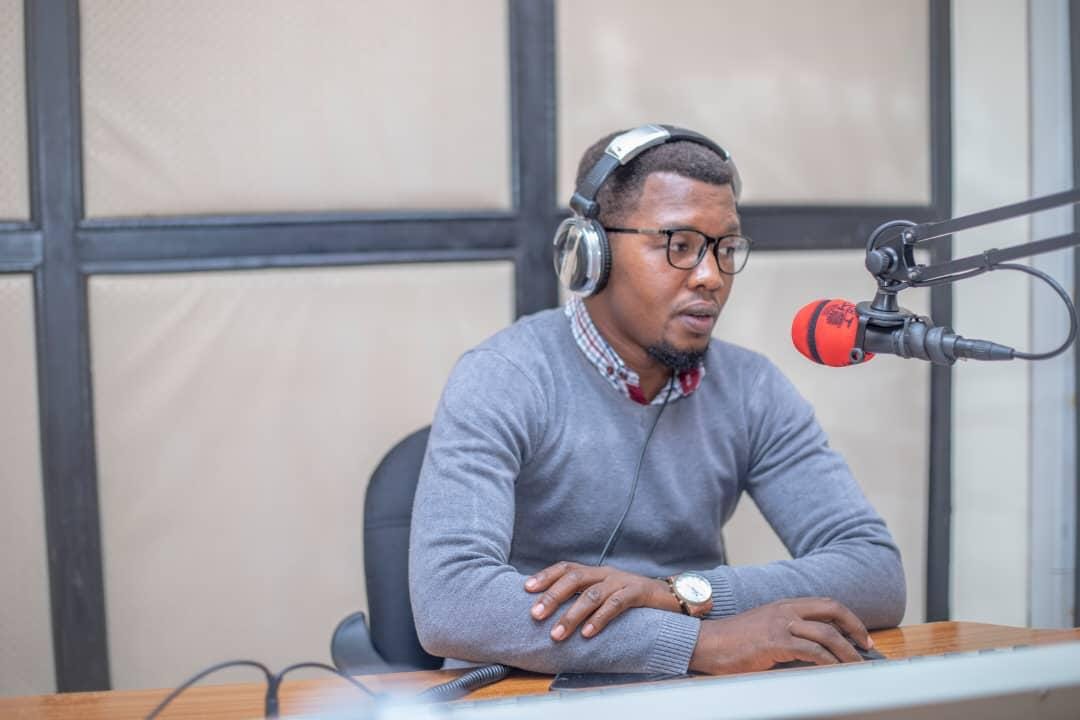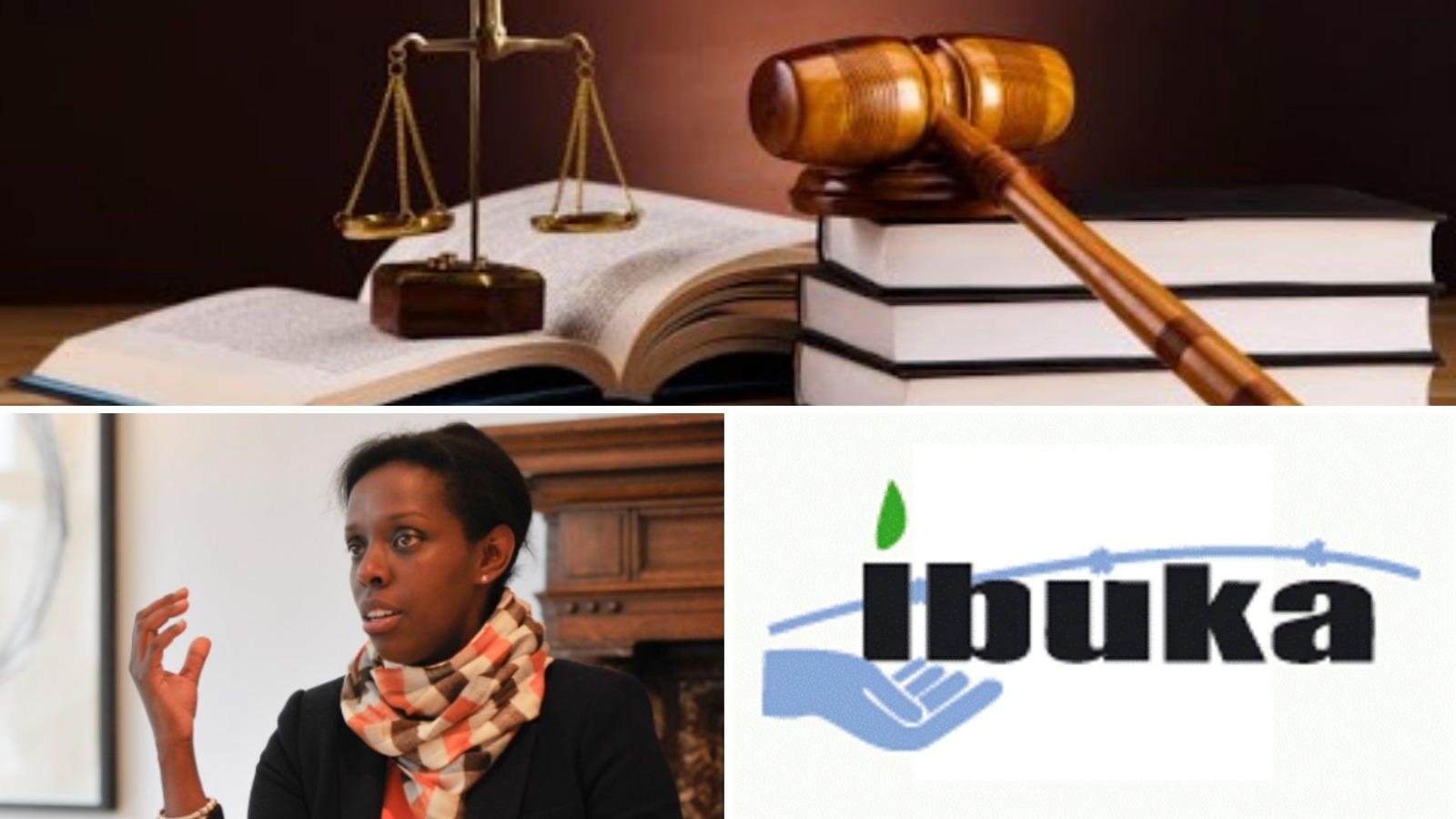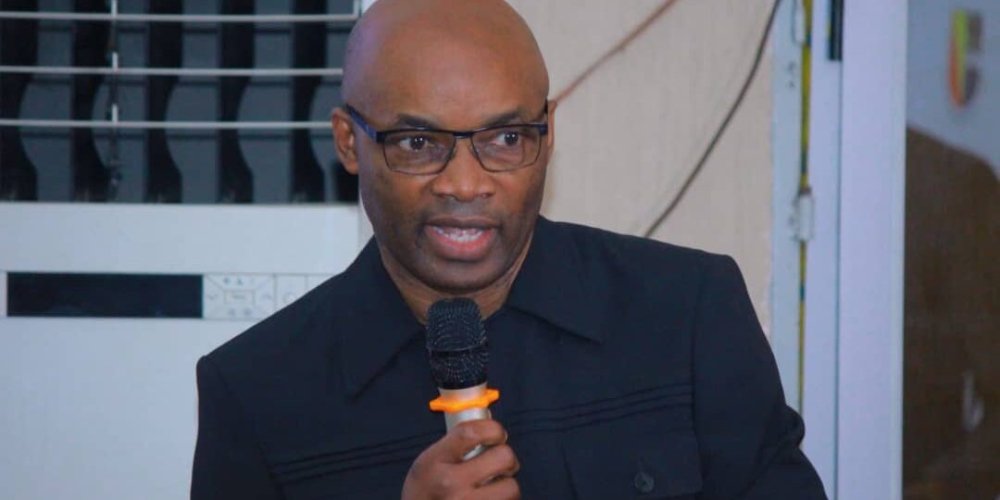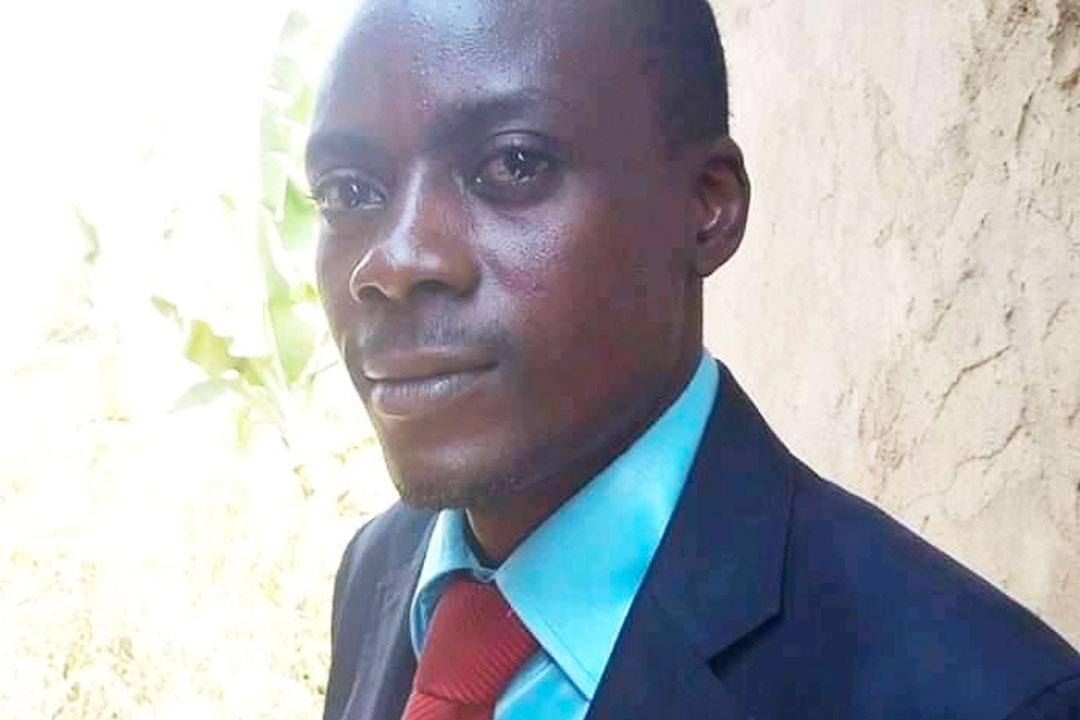Power in most democratic countries is divided between the legislature, executive and judiciary.
In democratic countries, news media is considered the fourth power, it is a segment of society that influences the political system by advancing public views. In contrast, in an authoritarian system, media is considered by those in power as either a tool to be used or an enemy to be fought.
In Rwanda, some journalists and human rights activists are standing up to the abuse of power and authoritarianism by mobilizing people to change their own minds and to fight for their rights violated daily by the authoritarian regime headed since 2000 by president Paul Kagame.
Paul Kagame, just as any other leader who has been in power for too long, is increasingly becoming fearful of an uprising. He has been waging a war against the freedom of press since the year 2000 by exerting control over media outlets, by restricting media content and by establishing a media law intended to block the people from even thinking about reporting on any sensitive public issue.
Among the topics which are considered taboo are the crimes committed against the Hutu during the war in Rwanda as well as during the war to overthrow Mobutu in former Zaire. President Kagame is accused of having committed many atrocities back then against Hutu refugees and other Congolese people. Another forbidden topic is the human rights abuses in Rwanda.
Growing up, I was characterised by a strong curiosity about all unspoken truths in our society. I dreamed of becoming a Journalist and Lawyer because I appreciated the people who fought against injustice or advocated against the injustices they witnessed.
In this opinion piece, I want to take you through my experience with journalism in Rwanda, a profession in which I served for 10 years from 2011 until 2021 in various public and private media outlets.
Based on what I have seen and gone through, I take this opportunity to narrate and give an overview of the state of media freedom in Rwanda, and why the Rwandan government does not want to loosen its iron grip on the Media.
To understand the situation of media freedom in Rwanda in 2022, one can refer to the Reporters Without Borders’ 2022 World Press Freedom Index which puts Rwanda at the 136th position out of 180 countries.
Regarding the reasons of ranking Rwanda to the 136th position, Reporters Without Borders referred to the number of journalists intimidated, arrested, exiled, kidnapped or killed, and to issues of self-censorship and the public perceptions as well.
Rwanda Governance Board (RGB), which is the official media-governing body in Rwanda, refutes the report, saying that press freedom in Rwanda is now progressing very well and referring to the increasing number of media outlets.
The political environment of each and every country must facilitate the media in fulfilling their duties, which are serving the public throughout education, information and entertainment. There must be a complementarity between government and media, but the political environment in Rwanda is limiting the press freedom.
Rwanda has a political system based on consensual decision-making and mutual understanding between political actors and political parties where difference is discussed under the forum of the political parties and therefore does not allow journalists to engage in free and open discussions.
Media and journalists who report any wrongdoing by the government or other serious issues in society are viewed as enemies of the state, accomplices of the enemies of Rwanda who endanger the sovereignty of the country.
In its 2012 monitoring of media coverage of the Genocide anniversary, the Media High Council singled out the BBC for criticism, attacking it for airing some “controversial stories portraying genocide denial or revisionism.”
“Rwanda’s Untold Story,” the BBC documentary which was broadcasted in October 2014 and questioned the official version of the Genocide, led to criticism and the suspension of BBC broadcasts in the Kinyarwanda language.
Except for the international media outlets trying to approach some sensitive issues in order to advance public views, in Rwanda the majority of media outlets are not serving the public so as to advance its views. It is rather serving the advancement of the views of the government.
What I have observed in Rwanda since I started journalism in 2011, although we had many websites, television stations, radio stations, and other online media, is that they all report with a single voice. They only tell the government’s side of the story. There is no diversity of views in all these different media outlets. The Rwandan government does not allow journalists to engage it in an open manner.
On May 30 2014, Rwanda Utilities Regulation Agency (RURA) published its decision to suspend the BBC’s Great Lakes service in Kinyarwanda for an indefinite period, despite the law giving it the power to regulate media content not yet being approved by the cabinet. The RURA concluded that “in airing the documentary, the BBC abused press freedom and free speech, violated its own editorial guidelines, transgressed journalistic standards, and violated Rwandan law, with particular reference to genocide denial and revisionism, inciting hatred and divisionism among Rwandans”.
Back in the year 2013, the creation of the Rwanda Media Commission (RMC) was a beacon of hope for Rwandan journalists. They thought that as a self-regulatory body, it would remove state-control of the media.
But in 2014 then RMC Chairman Fred Muvunyi argued against the government’s calls to ban the BBC’s Kinyarwanda language radio service over a television documentary, and against a government proposal to transfer the RMC’s powers to RURA.
Muvunyi resigned from the RMC shortly hereafter and some of the RMC’s powers were transferred to the Rwanda Utilities Regulatory Authority (RURA). Then a Ministerial Order limited the RMC self-regulating powers, giving those responsibilities to RURA, a state-run body that regulates telecommunications, broadcasting, postal services and public utilities. With this ministerial order the state regained the whole control of the media.
Fred Muvunyi was replaced by Cleophas Barore, a propagandist for RPF Inkotanyi. During Barore’s tenure many journalists were arrested and imprisoned because of their work of journalism reporting on wrongdoings by the ruling party. The RMC which has the mandate to protect journalists and advocate for media freedom in Rwanda, did nothing to defend the journalists who had gotten in trouble.
In different organs like the Office of the Government Spokesperson (OGS), RURA, RGB and also in the RPF media cell, there is a group of hired people who control the production of content in each and all media outlets as well as all journalists working in Rwanda.
The Regulatory Authority has the following mission with regard to media:
To accomplish its regulatory functions in general and in particular as laid down by the law governing media, to issue licenses for the establishment of media organs; to protect the public against misleading information, to control media advertisement, and to ensure the service provision of radio, television and internet broadcasting throughout the country, to resolve conflicts between signal distributors and broadcast content service providers and conflicts between broadcast service providers themselves and their subscribers.
The Rwanda Utilities Regulatory Authority (RURA) is censoring media content based on this law. It also ordered the suspension of the BBC’s radio broadcasts in the Kinyarwanda language for an indefinite period starting on the 25th October 2014.
Not only that but also the Rwanda Governance Board (RGB) Established by law Nr 41/2011 of 30/09/2011, is managed in accordance with Organic law Nr 06/2009 of 21st December 2009 establishing general provisions governing public institutions functioning and administration. RGB plays an oversight central government role of media sector policy development in Rwanda. This mandate is fulfilled under the department of “Media development, advocacy and reforms” which was transferred from the former Ministry of Information.
These institutions seen above along with other influential members of the RPF-Inkotanyi party are the ones who singled out the journalists to be arrested because of the produced content and the issues they had revealed to the society at large.
These institutions responsible for controlling, limiting and imposing media content in Rwanda are also responsible for the creation and funding of new YouTube channels and online websites which aim at criticizing and destroying media outlets and journalists which dare to report on the wrongdoings of those who are in power in Rwanda.
They allege these journalists and media outlets committed serious crimes and need to be convicted by courts, with crimes like spreading rumours, inciting the public to protest against the government and the president, divisionism and genocide ideology.
The Rwandan constitution in its article 38 allows and protects the freedom of press, and the Media law and the law for Access to information of 2013 were elaborated to protect journalists, but whenever journalists are attacked for the content of their publications, these provisions are never used to defend them. It is theoretical rather than practical.
With the closure and tight monitoring of radios, televisions and print media, YouTube and other social media platforms such as Twitter, Facebook and Instagram have emerged as the new ways to express dissident views on national issues. Now, the most popular of these platforms are also being targeted.
As consequence of censorship of media content, many of the journalists whose reporting was not appreciated by those in political or military power have been either intimidated, arrested, exiled or killed.
The Rwandan press is governed by censorship, both self- and government-enforced, with many journalists now distrustful of recent government moves to relax restrictions and allow greater media freedom.
The Rwandan government is also able to control the content of news reports. Apart from personnel control, they are also able to exercise their control through censorship. For example, media reports following the instructions and regulations proposed by the central government and the editorial line proposed by the RPF Inkotanyi party.
As the cost of doing some stories has been prison and death, some editors of media outlets choose to remove the substance of their reports. For example, during the Genocide commemoration days known as “Kwibuka”, editors and journalists censor their stories because they fear the consequences of publishing any story that could be seen as divisive or negationist. The consequences can be intimidation, arrest, prison, and impoverishment.
As the country marks the 28th anniversary of the Genocide against the Tutsi, which claimed at least 800,000 lives according to the UN, and a series of crimes committed by the RPF Army against Hutu in Rwanda and in former Zaire, some journalists say they have come to accept censorship and stopping their media activities during Kwibuka as a necessity to avoid falling into the trap of genocide ideology and genocide-denying allegations.
Genocide Commemoration, a most fearful period for Rwandan journalists.
“During the genocide commemoration period (Kwibuka), I take a leave of absence because I avoid reporting that can put me in danger, as even the terminology regarding the genocide changes every day. Making any slight mistake even involuntarily lands you in prison. You can be accused of the crime of genocide ideology, one of the most severe crimes we have in Rwanda. To avoid all of that I take a leave, and I stay away from the microphone so I don’t fall into the trap. The Kwibuka period is one of the most fearful periods for Rwandan journalists,” a local journalist anonymously told me before the start of Kwibuka28.
But for those who do not censor themselves, control is maintained through laws that threaten of harsh penalties for genocide ideology. According to the genocide ideology law nº 59/2018 of 22/8/2018, the law punishes genocide ideology and related crimes committed in public, with ‘public’ meaning a place where more than two people are gathered.
Journalists and people in general are restricted from commenting on topics such as the crimes committed by the RPF during the war in Rwanda, and the law can punish those who do comment for crimes of genocide ideology and other affiliated crimes such as denial, minimisation or justification of genocide. To illustrate, you are not allowed to comment on the number of the people killed during the genocide against the Tutsi, and even saying 800.000, the number recognised by the UN, is a crime of genocide minimisation.
The only number that the newly created MINUBUMWE (Ministry of National Unity & Civic Engagement) want media to report is ‘over 1,000,000’, not complying with this number is a serious crime with grounds for prosecution.
As an authoritarian regime, Rwanda exercises its control over the media in two main ways. On the one hand, they control the management and staffing of media outlets. Media associations such as the RMC and other journalists’ associations supposed to defend and protect the journalists are controlled by the government.
The directors of Rwanda’s leading media outlets such as Rwanda Broadcasting Agency (RBA), Igihe, New times, Kigali Today, Radio&Tv10, Flash FM and Isango Star are all members of the ruling party RPF-Inkotanyi. This is problematic for journalists who would wish to express their opinions freely and without censorship.
The role of the media under this authoritarian regime has become to mobilise the population in an effort to remake society in accord with the political propaganda and advance the views of those in power. They advance the propaganda of the ruling party, degrading the opinions of political opponents.
Another problem facing Rwandan journalists now is the journalists and media’s economic dependence on the government.
Media outlets are not allowed to freely access the market, and whether an outlet gets a share of the market, to sell advertisement space to some sectors or industries for example, is decided by the government. Access to the market is mainly reserved for the mentioned leading media outlets whose directors and owners have a close proximity with the ruling party.
In order to survive, these outlets act like the government spokespersons by reporting the articles in praise of the government, the ruling party and president Kagame in stories which Rwandan journalists have quietly labelled “Ibisingizo”.
Another economic hindrance is the money coming from Rwanda’s partners. Economic aid has played a significant role in the economic recovery of Rwanda, but aid to the media sector does not go directly to the media outlets. Most of it goes through governmental institutions such as the Rwanda Governance Board and redistribution is not always fair.
Consequently, the majority of media outlets are poor and have no capacity to hire and retain good journalists and analysts. Many journalists receive very low salaries while some are not paid at all.
In 2017, local popular channels ‘Royal TV’ and ‘KFM Radio’ closed over financial constraints. Another media outlet that had to close was ‘Contact TV’ and ‘Contact FM’, the only private radio in Rwanda privileged to host president Paul Kagame in 2004.
Contact FM was a reputable private media but was mismanaged by its director Albert Rudatsimburwa and closed over failing to pay its employees.
The poverty rampant in the media is the reason why there are very few investigative stories and little interpretive journalism in Rwanda. Media outlets cannot afford good journalists.
It is a problem for the future of journalism, because if journalists are not able to pay their bills, if they cannot see a future in the media because of the limited salaries they get, they cannot work in freedom, it seems impossible for a hungry journalist to do independent journalism.
With the economic situation of the Rwandan media and journalists, corruption in the sector is very high. Many journalists consider the “Giti”, a payment made to a journalist to write a story, as their salary because it is their only way to survive from impoverishment brought by the government in media. But when speaking of “Giti”, one can truthfully call it a bribe rather than salary.
Bribery involves journalists, editors and media houses accepting bribes for paid material disguised as news stories, or extorting money either for publishing favourable stories or not publishing damaging ones.
Poverty-ridden journalists are bribed by government officials to cover government events and to mobilise people according to the situation and to censor some serious issues and topics raised in the society. Many journalists choose to betray their profession to escape poverty and death.
When the government makes a mistake, it seeks out some of the media outlets and gives them a bribe to help gain public trust or defame political opponents.
It has become a common practice in Rwanda that an agency that organises a press conference should allocate money to each journalist who attends the press conference with the government’s green light.
This type of money is not money that is meant to save a journalist or solve their problems, but a money that it is only meant to keep a journalist’s eyes on the government in dependency circle and thus prevent them from conducting and reporting any wrongdoings by the government or a public institution.
The paid bribes vary depending on the story to be published, the quality of the targeted story and targeted audience, and the media crisis to cover. The sum goes from Rwf 10,000 to Rwf 100,000 and is based on the seniority of the journalist and the reach of the media outlet.
Today, Rwanda is engaged in a media war with the people standing up to fight the dictator regime in Rwanda and its human rights abuses. The government of Rwanda, through media controlling institutions, is bribing journalists, especially those known as ‘Intore’ or ‘Team PK’ that operate on internet, on YouTube and other social media, to attack journalists whose editorial line reports on and reveals wrongdoings by those in government or the army.
These attacks are made of stories full of insults and dehumanisation aiming at destroying the image of these journalists and their media outlets in the society.
Meanwhile the constitution of the Republic of Rwanda and the law n° 54/2018 of 13/08/2018 on fighting against corruption punish the crime of corruption. Since 2011 when I started my career in journalism, I have never heard of any journalist or government official or institution brought before a Rwandan court for paying or receiving the bribe “Giti”.
International human rights organisations, the Committee to Protect Journalists (CPJ) and the European Union are putting pressure on Rwanda to ensure freedom of press in Rwanda and stop the intimidation, arrestation, imprisonment, torture and assassination of journalists. But the government of Rwanda knows that the media have historically played an important role in revolutions all over the world and they fear the appearance of free, well organised and independent journalism in Rwanda.
NSENGUMUKIZA Prudence





